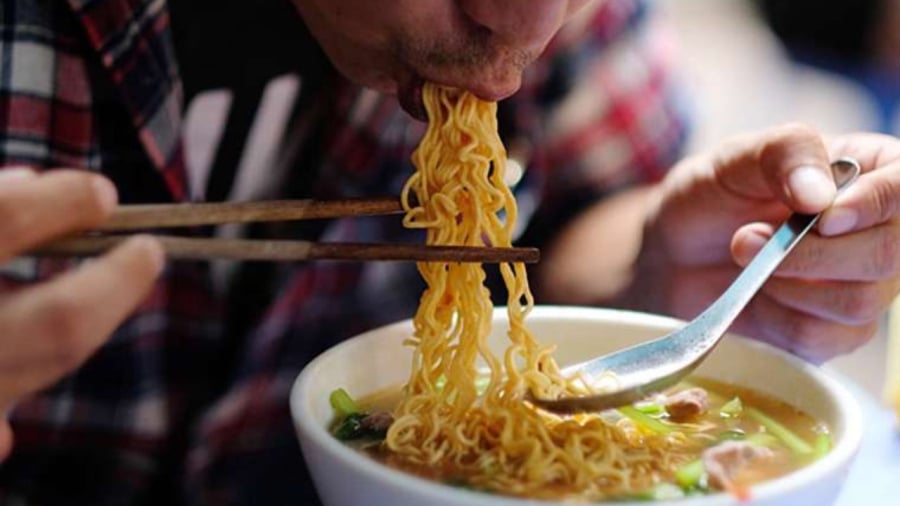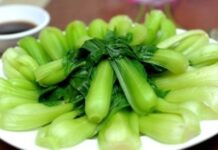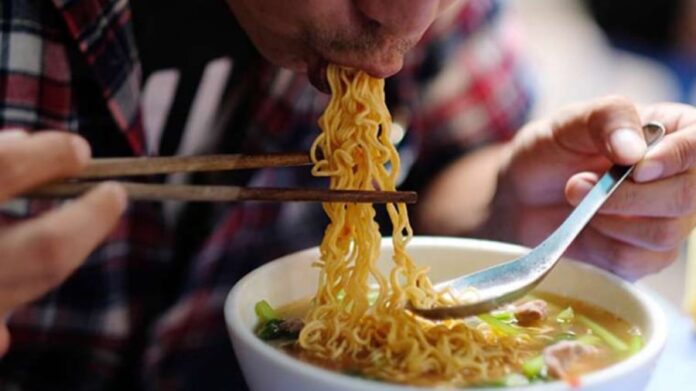Instant noodles are a convenient and popular food choice, but they offer little to no nutritional value. The main component of instant noodles is carbohydrates, while a healthy human body requires six essential nutrients: protein, fat, carbohydrates, minerals, vitamins, and water. Regular consumption of instant noodles can lead to nutritional deficiencies and excess salt intake, which can be harmful to your health.

Here are the groups of people who should refrain from consuming instant noodles:
People with kidney disease
Individuals with kidney disease need to limit their salt intake to reduce the burden on their kidneys. However, instant noodles contain excessive amounts of salt, not only in the seasoning packet but also in the noodles themselves (the total amount equals one-third of the daily recommended salt intake). Consuming instant noodles regularly with this high salt content can worsen the condition for those with kidney disease.
People with stomach ailments
Those suffering from stomach pain, ulcers, or acid reflux should also avoid instant noodles. The strong seasoning in instant noodles can dull the taste buds over time. Moreover, if you have stomach issues, instant noodles can create additional pressure on the stomach during digestion due to the high amount of seasoning.
Instant noodles are also difficult to digest. Even two hours after consumption, the noodles can still be found in their original form in the stomach. This can hinder the absorption of nutrients and allow harmful substances in the noodles to remain in the digestive system for longer, negatively impacting one’s health.
Individuals with obesity or cardiovascular disease
Consuming large amounts of instant noodles can contribute to weight gain. The noodles are fried in oil, and this oil is often of a lower quality, containing high levels of saturated fat. When consumed, this fat can increase the risk of obesity and cardiovascular disease if it enters the bloodstream and leads to atherosclerosis.
More importantly, instant noodles lack nutritional balance. They are predominantly made of starch, which can be converted into excess fat and energy in the body, offering no benefits to those struggling with obesity or cardiovascular issues.
Children
Instant noodles can stimulate the taste buds of children, making them very fond of the flavor and even leading to addiction. However, it is not advisable to give instant noodles to children as they fail to meet the high nutritional requirements of growing kids, only providing empty calories.
Additionally, instant noodles are challenging for young digestive systems to process. The prolonged digestion of instant noodles in the stomach can cause bloating, loss of appetite, and reduced nutrient absorption in children.
Can Children Indulge in Mooncakes?
The Mid-Autumn Festival, celebrated on the 15th day of the 8th lunar month, is a cherished tradition among the Vietnamese, with mooncake indulgence being a highlight. However, concerns have arisen regarding the suitability of these delicacies for children. Thus, we delve into this query, offering insights that address the question, “Should children consume mooncakes?” Stay tuned for an enlightening exploration!
How Much Fruit Juice Should Children Drink Daily?
Juice is a delicious and convenient way to ensure your children are getting their daily dose of vitamins and minerals. However, it is important to remember that while fruit juice can be a healthy treat, it should be consumed in moderation. As a concerned parent, it is your responsibility to ensure your child’s health by regulating their juice intake.





































